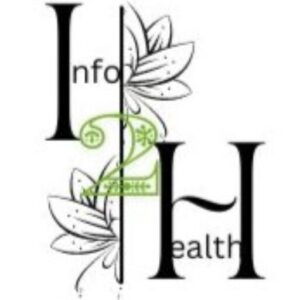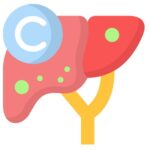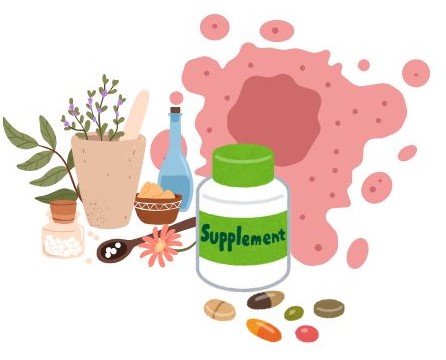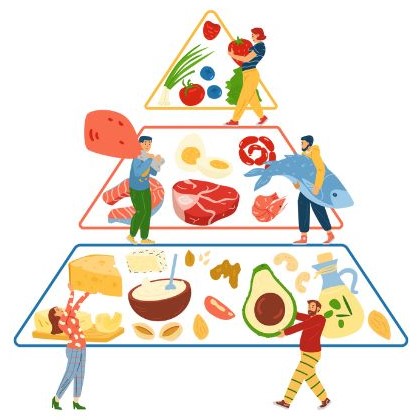Fatty liver disease, a condition characterized by an excessive accumulation of fat in liver cells, is becoming increasingly prevalent worldwide. Affecting millions, this condition can lead to serious health complications if left unmanaged, including inflammation, fibrosis, and even cirrhosis. There are two primary types of fatty liver disease: Non-Alcoholic Fatty Liver Disease (NAFLD), which is often linked to obesity, insulin resistance, and metabolic syndrome, and Alcoholic Fatty Liver Disease (AFLD), resulting from excessive alcohol consumption.
Diet plays a pivotal role in the management and potential reversal of fatty liver disease. While medical interventions are essential for some, dietary changes can significantly improve liver health and overall well-being. Specific foods can help reduce liver fat, lower inflammation, and enhance metabolic function, making it crucial to understand which dietary choices are beneficial.
In this article, we will explore the best foods to include in a diet aimed at managing fatty liver disease, highlighting their nutritional benefits and how they contribute to liver health. We will also address foods to avoid, as well as additional lifestyle modifications that can support your journey toward improved liver function. By making informed dietary choices, individuals can take proactive steps toward a healthier liver and a better quality of life.
Understanding Fatty Liver Disease
Types of Fatty Liver Disease
- Non-Alcoholic Fatty Liver Disease (NAFLD):
- Definition: NAFLD is characterized by the accumulation of fat in the liver in individuals who consume little to no alcohol. It is the most common liver disorder in the world.
- Subtypes:
- Simple Fatty Liver: Involves fat accumulation without inflammation or liver cell damage. It typically has a good prognosis.
- Non-Alcoholic Steatohepatitis (NASH): Involves not only fat accumulation but also inflammation and liver cell injury. NASH can progress to more serious liver conditions, including fibrosis and cirrhosis.
- Alcoholic Fatty Liver Disease (AFLD):
- Definition: AFLD is caused by excessive alcohol consumption, leading to fat accumulation in the liver. The severity of the condition is often related to the quantity and duration of alcohol intake.
- Progression: AFLD can progress to alcoholic hepatitis, fibrosis, and cirrhosis if alcohol consumption continues.
Causes of Fatty Liver Disease
Fatty liver disease can result from various factors, often interconnected:
- Obesity: Excess body weight is one of the strongest risk factors for NAFLD. Fat accumulation in the body can lead to fat deposition in the liver.
- Insulin Resistance: This condition, often associated with type 2 diabetes, leads to elevated blood sugar levels and can contribute to fat accumulation in the liver.
- Metabolic Syndrome: A cluster of conditions, including high blood pressure, high blood sugar, excess body fat around the waist, and abnormal cholesterol levels, increases the risk of NAFLD.
- Dietary Factors: Diets high in refined carbohydrates, added sugars, and unhealthy fats can contribute to the development of fatty liver disease.
- Genetics: Certain genetic factors may predispose individuals to fat accumulation in the liver.
- Medications: Some medications, including corticosteroids and certain cancer treatments, can increase the risk of fatty liver disease.
Symptoms of Fatty Liver Disease
Many individuals with fatty liver disease experience no symptoms in the early stages. However, as the disease progresses, some symptoms may develop, including:
- Fatigue: Persistent tiredness that doesn’t improve with rest.
- Discomfort in the Abdomen: A feeling of fullness or discomfort in the upper right abdomen, where the liver is located.
- Unexplained Weight Loss: Losing weight without trying can occur in advanced stages.
- Jaundice: Yellowing of the skin and eyes can occur in severe cases, indicating liver dysfunction.
Potential Complications
If fatty liver disease progresses, it can lead to serious health complications:
- Fibrosis: The development of scar tissue in the liver as a result of ongoing inflammation and injury.
- Cirrhosis: Advanced scarring of the liver that impairs liver function and can lead to liver failure.
- Liver Cancer: Individuals with cirrhosis are at an increased risk of developing hepatocellular carcinoma, a type of liver cancer.
- Cardiovascular Disease: There is a strong association between fatty liver disease and cardiovascular conditions, including heart disease and stroke.
Diagnosis
Fatty liver disease is often diagnosed through a combination of:
- Medical History and Physical Exam: A healthcare provider will assess risk factors, symptoms, and perform a physical exam.
- Blood Tests: Liver function tests can indicate elevated liver enzymes, suggesting liver inflammation.
- Imaging Studies: Ultrasound, CT scans, or MRIs can visualize fat accumulation in the liver.
- Liver Biopsy: In some cases, a liver biopsy may be performed to assess the degree of liver damage and inflammation.
Understanding fatty liver disease is essential for effective management and prevention of complications. With a focus on lifestyle changes, particularly diet, individuals can take significant steps to improve their liver health. Early diagnosis and intervention are critical in preventing the progression of the disease, making awareness of the condition and its implications paramount for those at risk.
Foods to Include in Your Diet
1. Fruits and Vegetables
Why They’re Important:
- Fruits and vegetables are rich in antioxidants, vitamins, and minerals, which can help reduce inflammation and oxidative stress in the liver.
Best Choices:
- Leafy Greens: Spinach, kale, and collard greens can help increase bile production and aid in fat metabolism.
- Cruciferous Vegetables: Broccoli, cauliflower, and Brussels sprouts contain compounds that support liver detoxification.
- Berries: Blueberries, strawberries, and raspberries are high in antioxidants and have been shown to improve liver health.
- Citrus Fruits: Oranges, lemons, and grapefruits are rich in vitamin C and antioxidants, which can help reduce liver fat.
2. Whole Grains
Why They’re Important:
- Whole grains provide fiber, which can help improve insulin sensitivity and reduce liver fat.
Best Choices:
- Oats: High in soluble fiber, oats can help lower cholesterol levels and improve liver function.
- Quinoa: A complete protein source, quinoa is also rich in fiber and essential nutrients.
- Brown Rice: A healthier alternative to white rice, brown rice is high in fiber and helps regulate blood sugar levels.
3. Healthy Fats
Why They’re Important:
- Healthy fats can help reduce inflammation and improve liver health. They are also crucial for nutrient absorption.
Best Choices:
- Avocado: Packed with healthy monounsaturated fats, avocados can help lower cholesterol levels and support liver health.
- Olive Oil: Rich in antioxidants and healthy fats, olive oil has been shown to improve liver enzyme levels.
- Nuts and Seeds: Walnuts, almonds, chia seeds, and flaxseeds are rich in omega-3 fatty acids and can help reduce liver fat.
4. Lean Proteins
Why They’re Important:
- Lean proteins support muscle mass and help regulate metabolism, which is vital for individuals with fatty liver disease.
Best Choices:
- Fish: Fatty fish like salmon, mackerel, and sardines are rich in omega-3 fatty acids, which can help reduce liver fat and inflammation.
- Poultry: Skinless chicken and turkey provide lean protein without excessive fat.
- Legumes: Beans, lentils, and chickpeas are excellent plant-based protein sources high in fiber.
5. Dairy Alternatives
Why They’re Important:
- Low-fat dairy products can provide protein and calcium without contributing to fat accumulation.
Best Choices:
- Greek Yogurt: High in protein and probiotics, Greek yogurt can support gut health and aid in fat metabolism.
- Almond Milk: A low-calorie dairy alternative that can be fortified with vitamins and minerals.
6. Herbs and Spices
Why They’re Important:
- Certain herbs and spices can provide anti-inflammatory and antioxidant properties that support liver health.
Best Choices:
- Turmeric: Contains curcumin, which has anti-inflammatory properties and may help reduce liver fat.
- Garlic: Rich in antioxidants, garlic can help improve liver function and lower fat levels.
- Ginger: Known for its anti-inflammatory effects, ginger can aid digestion and support liver health.
Foods to Avoid When Managing Fatty Liver Disease
1. Sugary Foods and Beverages
Examples:
- Soft drinks, fruit juices with added sugars, candies, cakes, pastries, and other desserts.
Why to Avoid:
- High Fructose Corn Syrup: Many processed foods and beverages contain high fructose corn syrup, which can lead to increased fat accumulation in the liver. Studies have shown that excessive fructose intake is linked to the development of NAFLD.
- Insulin Resistance: Sugary foods can contribute to insulin resistance, exacerbating fat storage in the liver and leading to further liver damage.
2. Refined Carbohydrates
Examples:
- White bread, white rice, pastries, and many processed snack foods.
Why to Avoid:
- Low Nutritional Value: Refined carbohydrates lack fiber and essential nutrients, which can negatively impact metabolic health.
- Rapid Blood Sugar Spikes: These foods can cause quick increases in blood sugar levels, leading to insulin resistance and fat accumulation in the liver.
3. Saturated and Trans Fats
Examples:
- Fried foods, fatty cuts of meat, full-fat dairy products, processed snacks, and baked goods containing partially hydrogenated oils.
Why to Avoid:
- Inflammation: Saturated and trans fats can promote inflammation in the liver, worsening liver damage.
- Increased Liver Fat: These fats contribute to higher levels of liver fat and can increase the risk of developing NASH.
4. Alcohol
Why to Avoid:
- Direct Liver Toxicity: Alcohol is a known hepatotoxin, and excessive consumption can lead to inflammation and liver damage.
- Increased Risk of Progression: For individuals with AFLD, continued alcohol intake can worsen liver health and accelerate the progression to cirrhosis or liver failure.
- Interaction with NAFLD: Even moderate alcohol consumption can exacerbate liver issues in individuals with NAFLD.
5. Processed Meats
Examples:
- Bacon, sausages, hot dogs, and deli meats.
Why to Avoid:
- High in Unhealthy Fats and Sodium: Processed meats are often high in saturated fats and sodium, both of which can contribute to liver inflammation and obesity.
- Cancer Risk: Some studies have linked processed meats to an increased risk of certain cancers, including liver cancer.
6. Fast Foods and Highly Processed Foods
Examples:
- Burgers, fries, pizza, and other convenience foods.
Why to Avoid:
- High Caloric Content: Fast foods are often calorie-dense and nutrient-poor, contributing to weight gain and obesity, which are risk factors for fatty liver disease.
- Unhealthy Additives: Many fast foods contain unhealthy additives, preservatives, and unhealthy fats that can harm liver health.
7. Full-Fat Dairy Products
Examples:
- Whole milk, cream, cheese, and butter.
Why to Avoid:
- High Saturated Fat: Full-fat dairy products can be high in saturated fats, which can contribute to fat accumulation in the liver.
- Caloric Density: These products can be calorie-dense, potentially leading to weight gain if consumed in excess.
8. High-Sodium Foods
Examples:
- Canned soups, processed snacks, and pre-packaged meals.
Why to Avoid:
- Fluid Retention: High sodium intake can lead to fluid retention and increased blood pressure, which can exacerbate liver disease.
- Increased Risk of Hypertension: Sodium can contribute to hypertension, further straining the liver and overall cardiovascular health.
Avoiding certain foods is essential for effectively managing fatty liver disease and preventing its progression. By steering clear of sugary foods, refined carbohydrates, unhealthy fats, alcohol, and highly processed items, individuals can support liver health and improve their overall well-being. Making informed dietary choices, along with regular physical activity and lifestyle changes, can significantly impact the management of fatty liver disease. Always consult with a healthcare professional or registered dietitian for personalized dietary advice tailored to your specific health needs.
Lifestyle Considerations for Managing Fatty Liver Disease
1. Maintain a Healthy Weight
Importance:
- Weight Loss Benefits: Even a modest weight loss of 5-10% can significantly reduce liver fat and improve liver function. Studies have shown that losing weight can help reverse the effects of fatty liver disease, particularly in individuals with NAFLD.
Strategies:
- Set Realistic Goals: Aim for gradual weight loss through a balanced diet and regular physical activity rather than extreme diets.
- Monitor Progress: Keep track of your weight, dietary habits, and physical activity to stay motivated and make necessary adjustments.
2. Stay Hydrated
Importance:
- Detoxification: Proper hydration is crucial for liver function and detoxification processes. Water helps flush out toxins and supports overall metabolic processes.
Strategies:
- Water Intake: Aim for at least 8-10 cups of water per day, adjusting based on activity level and climate. Herbal teas and infusions can also contribute to hydration.
- Limit Sugary Beverages: Replace sodas and sweetened drinks with water or unsweetened beverages to reduce sugar intake.
3. Regular Exercise
Importance:
- Improved Insulin Sensitivity: Regular physical activity can enhance insulin sensitivity and help reduce liver fat.
- Weight Management: Exercise is essential for maintaining a healthy weight and promoting overall well-being.
Strategies:
- Aim for Consistency: Try to engage in at least 150 minutes of moderate aerobic exercise each week, such as walking, cycling, or swimming.
- Incorporate Strength Training: Include strength training exercises at least two days a week to build muscle mass, which can further aid in weight management and metabolic health.
4. Balanced and Nutrient-Dense Diet
Importance:
- Nutritional Support: A diet rich in whole, nutrient-dense foods can help support liver health and reduce inflammation.
Strategies:
- Meal Planning: Plan meals that include a variety of fruits, vegetables, whole grains, lean proteins, and healthy fats to ensure you’re getting a balanced intake of nutrients.
- Mindful Eating: Practice mindful eating by paying attention to hunger cues and savoring each bite. This can help prevent overeating and promote a healthier relationship with food.
5. Regular Monitoring and Medical Check-ups
Importance:
- Early Detection of Complications: Regular medical check-ups can help monitor liver health and detect any potential complications early.
Strategies:
- Follow-Up Appointments: Schedule regular appointments with your healthcare provider to monitor liver function through blood tests and imaging if necessary.
- Stay Informed: Educate yourself about your condition and actively participate in your healthcare decisions.
6. Manage Stress
Importance:
- Stress and Health: Chronic stress can negatively impact overall health, including liver function. Stress may lead to unhealthy coping mechanisms, such as overeating or consuming alcohol.
Strategies:
- Stress-Reduction Techniques: Incorporate relaxation techniques such as yoga, meditation, deep breathing exercises, or mindfulness practices into your daily routine.
- Engage in Hobbies: Find activities you enjoy that can help reduce stress and promote well-being, whether it’s reading, gardening, or spending time with loved ones.
7. Avoid Toxins
Importance:
- Protecting Liver Health: The liver plays a crucial role in detoxifying harmful substances. Reducing exposure to environmental toxins can support liver function.
Strategies:
- Household Products: Opt for natural cleaning and personal care products to reduce chemical exposure.
- Limit Exposure to Pollution: Whenever possible, avoid areas with heavy pollution and consider using air purifiers at home.
8. Educate Yourself and Seek Support
Importance:
- Knowledge is Power: Understanding fatty liver disease and its management can empower you to make informed decisions about your health.
Strategies:
- Join Support Groups: Consider joining support groups or forums where you can connect with others who are managing similar conditions. Sharing experiences and advice can be beneficial.
- Stay Informed: Read up on the latest research and recommendations related to fatty liver disease to stay current with effective management strategies.
Managing fatty liver disease extends beyond diet to encompass a holistic approach to health and wellness. By maintaining a healthy weight, staying hydrated, exercising regularly, and making informed lifestyle choices, individuals can significantly impact their liver health and overall well-being. Regular monitoring and support, coupled with stress management and education, further enhance the ability to manage fatty liver disease effectively. Working closely with healthcare professionals ensures that personalized strategies are in place, promoting a path toward improved liver function and quality of life.

Managing fatty liver disease through diet is both effective and empowering. By incorporating nutrient-dense foods such as fruits, vegetables, whole grains, healthy fats, and lean proteins into your diet, you can support liver health and potentially reverse the effects of fatty liver disease. Avoiding harmful foods and maintaining a healthy lifestyle further enhance these efforts. Always consult with a healthcare provider or a registered dietitian for personalized dietary advice tailored to your specific health needs. With the right approach, it’s possible to take significant steps toward improving liver health and overall well-being.







